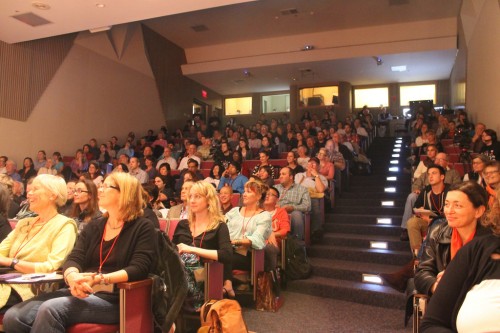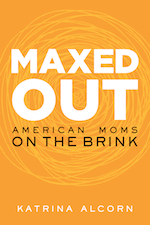I’ve written before about why I believe results-only work environments (ROWE) have the potential to transform the workplace for the better, not just for moms and dads, but for anyone who wants to be great at their job and still have a life. Now I’m excited to announce that the folks at ROWE have a new training series to make it easier for all kinds of companies—small and large—to get in on the action.
But first, for those of you who have never heard of ROWE, a quick recap:
ROWE is a management strategy where employees are evaluated on performance, rather than arbitrary measures like the amount of time they spend at the office. Employees are empowered to make their jobs compatible with their lives, which is not only great for their health, it’s also great for business. Companies like Gap Inc. report that productivity and morale go way up after they become a ROWE.
Here’s what people who have been through ROWE training have to say about it:
If I sound like a zealot, it’s because I am.* Although I’ve never officially worked in a ROWE, as a happily self-employed person, I feel like I’ve created my own unofficial ROWE.
I’m 100% accountable to my clients which means I’m judged 100% on the quality of my work. No one is checking to see when I’m at a desk. I don’t attend meetings that waste my time. I do most of my work from home, but I prioritize in-person meetings when I’m brainstorming with a team (even if that means flying to Texas, as I’ve been doing a lot recently), because that’s usually the most effective way to get that kind of work done.
Yes, I sometimes work nights and weekends when I have to meet a deadline, but I’m just as likely to go to the gym in the middle of the day, or meet a friend for lunch, or pick up my kids early when work is slower.
Having this autonomy has made an enormous difference in my life. It’s changed me from being a maxed out mom to feeling like I can thrive in my career and in my personal life.
Obviously, not everyone is in a position to start their own business, but all businesses would benefit from creating a work culture that values people. Which is why I was so excited to see that Cali Ressler and Jody Thompson, the masterminds behind ROWE, have created a do-it-yourself system for people who want to transform their workplaces into results-only environments.
Learn more about the Do-It-Yourself ROWE online training here.
* * *
Full disclosure: I’ve recently become a ROWE affiliate, which means I make a small fee when someone clicks the link on this site and then signs up for the training program. But the fact is, I would do this for free because I believe in the concept and the women behind it. Every single day I get emails from PR people asking if I’ll accept advertising on my blog. 99.9% of the time I ignore them because the products don’t interest me, and anyway, I didn’t start this blog to make money, I started it to share ideas. But when I was invited to become a ROWE affiliate, I gladly accepted. I hope it will be a tool that helps you create the kind of workplace you deserve.
Update July 29, 2014: I’ve been doing more freelance writing (for pay) and in order to avoid a conflict of interest, I’m no longer going to be a ROWE affiliate. This way, I can write about ROWE for newspapers and magazines, I just won’t get paid if you sign up. Which is fine—I’m more interested in getting the word out than making money off of ROWE. Now go sign up!
{ 2 comments }










